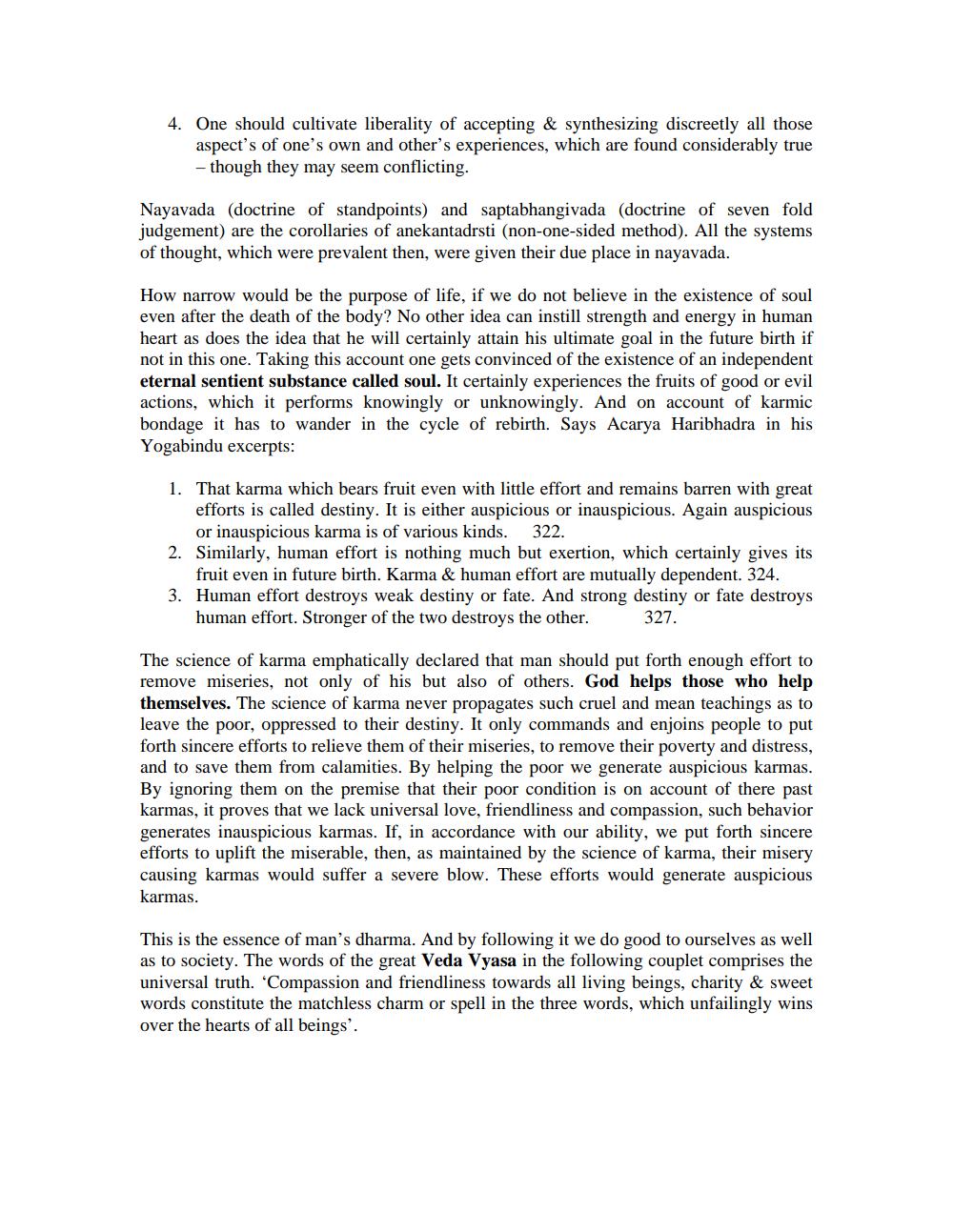Book Title: Essentials of Jaina Philosophy Author(s): Nyayavijay, Nagin J Shah Publisher: Nyayavijay Nagin J Shah View full book textPage 4
________________ 4. One should cultivate liberality of accepting & synthesizing discreetly all those aspect's of one's own and other's experiences, which are found considerably true - though they may seem conflicting. Nayavada (doctrine of standpoints) and saptabhangivada (doctrine of seven fold judgement) are the corollaries of anekantadrsti (non-one-sided method). All the systems of thought, which were prevalent then, were given their due place in nayavada. How narrow would be the purpose of life, if we do not believe in the existence of soul even after the death of the body? No other idea can instill strength and energy in human heart as does the idea that he will certainly attain his ultimate goal in the future birth if not in this one. Taking this account one gets convinced of the existence of an independent eternal sentient substance called soul. It certainly experiences the fruits of good or evil actions, which it performs knowingly or unknowingly. And on account of karmic bondage it has to wander in the cycle of rebirth. Says Acarya Haribhadra in his Yogabindu excerpts: 1. That karma which bears fruit even with little effort and remains barren with great efforts is called destiny. It is either auspicious or inauspicious. Again auspicious or inauspicious karma is of various kinds. 322. 2. Similarly, human effort is nothing much but exertion, which certainly gives its fruit even in future birth. Karma & human effort are mutually dependent. 324. 3. Human effort destroys weak destiny or fate. And strong destiny or fate destroys human effort. Stronger of the two destroys the other. 327. The science of karma emphatically declared that man should put forth enough effort to remove miseries, not only of his but also of others. God helps those who help themselves. The science of karma never propagates such cruel and mean teachings as to leave the poor, oppressed to their destiny. It only commands and enjoins people to put forth sincere efforts to relieve them of their miseries, to remove their poverty and distress, and to save them from calamities. By helping the poor we generate auspicious karmas. By ignoring them on the premise that their poor condition is on account of there past karmas, it proves that we lack universal love, friendliness and compassion, such behavior generates inauspicious karmas. If, in accordance with our ability, we put forth sincere efforts to uplift the miserable, then, as maintained by the science of karma, their misery causing karmas would suffer a severe blow. These efforts would generate auspicious karmas. This is the essence of man's dharma. And by following it we do good to ourselves as well as to society. The words of the great Veda Vyasa in the following couplet comprises the universal truth. 'Compassion and friendliness towards all living beings, charity & sweet words constitute the matchless charm or spell in the three words, which unfailingly wins over the hearts of all beings'.Page Navigation
1 2 3 4 5 6 7 8 9 10 11 12 13 14 15 16 17 18 19 20 21
